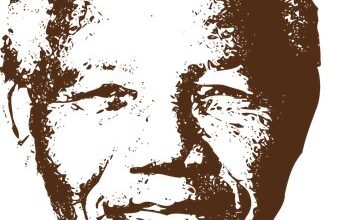
The Bet by Anton Chekhov follows the story of two men who have surrendered their lives to a bet they made when they were young and foolish. No names are given to any characters here. Narrated in the third person, through the perspective of the banker, the story takes place fifteen years after the bet is made, which is when it is completed
The Bet | Summary
The story begins on a dark autumn night when the old banker was walking up and down his study and remembering the party he had given fifteen years before. There were many gentlemen there and the topic had somehow steered towards capital punishment. The journalists disapproved of the death penalty. The banker disagreed on the grounds that capital punishment gives instant death whereas lifelong imprisonment is slow killing, day by day. One of the guests said both of them to be completely immoral as the State cannot give or take life. A young lawyer of twenty-five gave his opinion that he agreed on both to be equally immoral but if he had to choose, he would choose life imprisonment because then, he would be alive which raised a discussion among the crowd. The banker bet two million against the young man that he won’t be able to say in solitary confinement for five years; the young man said that instead of five, he would spend fifteen and the bet was made.
At supper, the banker asked the young man to rethink his choice because he believed that the young man won’t last three or four years as he would know that he can walk out anytime he pleases. The banker said that he is interested in the amount of two million this bet will bring him. Later that evening, the young man was decided to spend the years in one of the lodges in the banker’s garden. For fifteen years, he would stay within the lodge, he won’t be allowed to meet any human being, hear a human voice or receive letters and newspapers. He could have a musical instrument and books and was allowed t write letters, drink wine, and smoke. The only relation with the outside world was to be made through the little window made purposefully for that object. He was to stay there for exactly fifteen years, beginning from twelve o’clock on November 14, 1870, and ending at twelve o’clock on November 14, 1885.
For the first year, he was severely depressed and lonely. He played the piano continuously and refused to take wine and tobacco as he wrote in one of his letters, that wine excites his desires, and tobacco spoilt the air of his room. He also read some light fantasy and romantic books. During that time, he wrote the banker a letter in six languages and asked if any one of them didn’t have even the slightest mistake, then he fires a shot in the garden. The banker fired two shots. During the tenth year, he sat still and only read the Gospel again and again. In the last two years, he read a vast quantity of books such as natural sciences, Bryon or Shakespeare, books on chemistry, a medicine manual, a novel, and some treatise on philosophy or theology.
The old banker remembered all this happening and thought to himself that he would have to give his hard-earned two million to him and he, himself, would be utterly ruined. Fifteen years ago, he had the resources that this amount would not have made a dent in his assets, but after gambling most of his money away on the Stock Exchange, he had become a banker of the middle rank from the banker that he used to be. Muttering a curse to himself, he wondered why the man hadn’t died, he was about to take the banker’s money, he would enjoy life and pity the banker for his misfortunes which made the banker rage. At three o’clock, when everyone was asleep, the banker quietly got up and took the key from a fireproof safe, put on his overcoat, and went outside. The garden was dark and cold with no sound except the rustling of the trees and the rain. The banker was unable to see much outside. When he reached the lodge, he called the watchman twice but didn’t receive any answer. The old man thought that if he wanted to carry out his intent, the watchman would be blamed. He went inside and lit a match and saw a bed and a cast-iron stove. His match went out and he peered through the window and saw the man sitting on the table with very little of him visible.
The man at the table didn’t stir even after five minutes, the banker broke the seal and unlocked the door still the prisoner didn’t stir. The banker entered the room and saw a man sitting on the table who was a skeleton with skin, he had a yellow face, and hollow cheeks, and his hair was streaked with gray. He had a paper in front of him with something written on it. The banker thought that he was dreaming of the millions he is sure to get and all he had to do was suffocate him with a pillow and no one would know how he died. Then he read the writing on the page which said that the man was not interested in earthly pleasures, now that he has seen what spiritual pleasure is. He had decided to leave the two million by leaving five hours before the fixated time.
The banker laid the letter and kissing the man on the forehead went out. The morning after, the watchmen told the banker that they had seen the man climb out of the window into the garden and disappear. The banker made it known to everyone that his prisoner had fled. He also took the letter and put it in a fireproof safe.
The Bet | Analysis
In the story, the author does a comparison of two punishments: life imprisonment and capital punishment. To showcase this, he follows it with a story that seems quite impossible to happen in real life. He examines philosophical questions (against the backdrop of a simple plot) as they are supposed to carry out in normal human life.
Through the story “The Bet”, the author demonstrates the pitfalls of idealism and the foolish decisions that the young people make in a whimsical way. If the lawyer was older and wiser, one might think that he wouldn’t have decided to go to life imprisonment in his blooming years and he would have backed out of the bet. In case he had a family, a wife or children, or someone who counts on him, he would have never let go of all his life in a single moment and would have simply denied the bet. So, the author uses the bet here to demonstrate the selfishness of young people and the rash decisions of youth. As the lawyer has nothing to lose and he could gain two million, he cannot think of a reason to deny the bet and foolishly agrees.
The reader does the see the perspective of the lawyer throughout the story. The reader is unaware of what the lawyer is thinking when he agrees to the bet. The only time the lawyer is seen communicating and expressing his thoughts is when he writes the letters to the banker. We never really see the lawyer’s thought process wholly as we see the thoughts of the banker. This allows the lawyer to become a model of idealism who has sacrificed fifteen years of his life to prove his moral principles, something that seems quite difficult to follow through in real life.
Humans are social creatures and this story clearly demonstrates the toll it might take on a person when he is removed from the environment he is used to and is completely isolated. The lawyer’s erratic and unpredictable behavior, throughout the story, is an ideal example of this. Whereas the lawyer denies tobacco and wine before, later, he becomes addicted and smokes and drinks constantly.
The story is left in a sort of an open-ended manner which may be deliberate on the author’s part making the reader ask themselves some unspoken questions. What happens to the lawyer in the end? Does he carry on living a happy life? Does the banker live his life remorse free, having no guilt about keeping the youth years of a man away? It is visible that the banker feels some contempt towards himself but the extent of that is unknown. The story does not give these details. It is possible that the banker carries the guilt for the rest of his life whereas it is also possible that he forgets all about the lawyer and continues to live his life happily.



